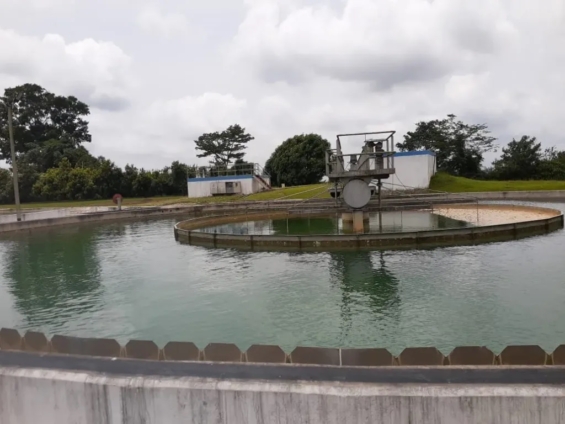The Communications Manager of Ghana Water Company (GWCL) for the Western and Central regions has expressed concern over the pollution of water bodies that serve as sources of drinking water for many.
According to Nana Yaw Barima Barnie, it is unfortunate that money has been prioritised over people's lives, stating that poisoning drinking water sources is effectively an attempt to harm the population.
Speaking on Top Story on Friday, August 30, Mr Barnie expressed that the extent of pollution has reached a point where it no longer seems reasonable for the Ghana Water Company Limited (GWCL) to continue treating water in the country.
He explained that GWCL used to use aluminum sulfate to treat suspended particles in water, but it is no longer effective due to the highly polluted state of the Pra River.
“We are spending four times more than what we were spending in the past when we were using alum. We are now spending four times more now that we are using polyelectrolyte because that is more expensive,” he said.
His comment comes after the management of Ghana Water Company Limited in the Central Region announced recent challenges with water supply in Cape Coast, Elmina, and surrounding communities.
According to them, the recent demand-supply gap is due to inadequate raw water received at the Sekyere Hemang Water Treatment Plant (WTP) caused by illegal mining (galamsey) activities.
In a press statement signed and issued by the Central Regional Office of GWL on Friday, August 30, it noted that pollution of the Pra River, especially at the catchment area for abstraction, has significantly reduced water intake to the barest minimum.
It further mentioned that the plant is currently able to produce only about 7,500m³/day, a quarter of its installed capacity, noting that the situation has caused severe inconvenience to customers and consumers and apologised for the disruption.
In light of this, Mr Barnie said the GWCL may not be able to continue with the treatment of water and warned that the Sekyere Hemang Water Treatment Plant (WTP), which supplies raw water to the region, might eventually be forced to shut down.
“We are treating water and getting only a quarter of the capacity of the plant… People will now have to be running helter-skelter looking for where they can get water,” he added.
Latest Stories
-
TVET is not just acquiring certificate, but rather empowering individuals with practical skills – McDan
13 minutes -
Mahama directs NIB to investigate Akufo-Addo’s official travels – Reports
22 minutes -
Government assures support for Family Health University’s growth and research
28 minutes -
A century in the sky: Delta celebrates 100 Years with museum refresh
31 minutes -
Stakeholders call for amendment of Persons with Disability Act
47 minutes -
Music collaborations unite Africa – Diamond Platnumz
56 minutes -
Standard Chartered holds investment conversations over Afro-Asian culinary delights
1 hour -
ECG officials collude with customs officers to sell containers at port – Afenyo-Markin
2 hours -
BoG’s real sector indicators point to significant improved business, consumer sentiments
2 hours -
King Paluta is the only worthy Artiste of the Year Nominee for TGMA ’25 – MC Portfolio
2 hours -
I lost my home when I decided to start ‘Traffic Shawarma’ – Beverly Afaglo
2 hours -
Beverly Afaglo criticises celebrities who attend big parties for fame, urges rich men to invest in the craft
3 hours -
Processes were already underway to forward petitions to CJ for response – Presidency clarifies
3 hours -
BoG increases policy rate to 28% to tame inflation
3 hours -
National Kaizen Project: Japanese volunteer helps local businesses embrace Kaizen and improve productivity in A/R
3 hours

